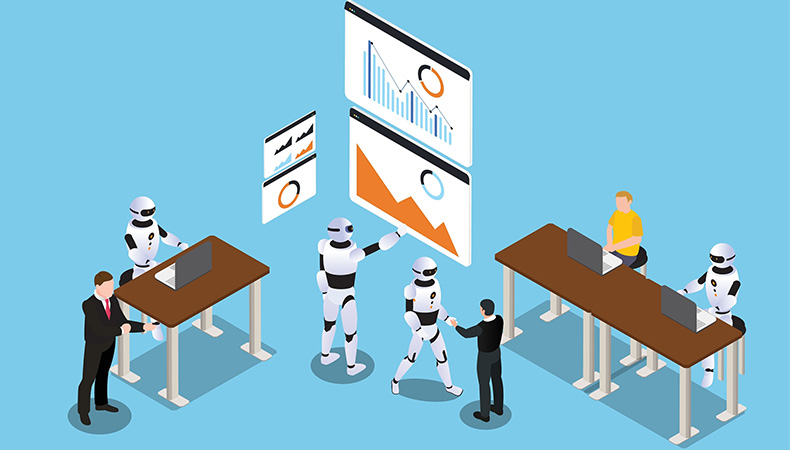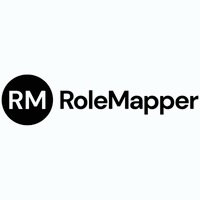Why role deconstruction is key to the future of work
When we talk about the future of work, the conversation often starts with technology: AI, automation, hybrid working and digital transformation.
These forces are reshaping organisations everywhere. However, the shift you need to prepare for is more fundamental. It’s about work deconstruction, breaking jobs into their component parts so you can see what is really happening, who is doing what and how value is created.
For leaders in reward and workforce strategy, understanding work at this level is becoming essential. Compensation, talent decisions and organisational design are only as effective as your understanding of the work itself.
Without visibility at this depth, strategies risk being built on assumptions rather than reality. What looks efficient on paper often hides duplication, pressure points and missed opportunities that only surface when work is properly understood.
What work deconstruction really means
Work deconstruction doesn’t replace job titles or job descriptions - both remain vital for structure and compliance. Instead, it adds a new layer of clarity by asking three key questions:
- What are the repeatable tasks that make up this role?
- Which skills are needed to perform each task?
- What outcomes do these tasks deliver for the business?
Seen this way, work becomes a dynamic system rather than a static list of responsibilities. It becomes possible to see how tasks flow, where people are stretched and where technology could offer support.
For reward leaders, this clarity enables pay and progression decisions that reflect real contribution, not outdated assumptions.
Why this matters now
Economic pressure has shifted the focus from retention to reinvention. Leaders are being asked to deliver more with less while keeping transformation sustainable. Without an accurate view of work, organisations tend to rely on blunt tools such as cutting jobs, freezing hiring or adding layers of oversight.
Work deconstruction offers a smarter approach. It shows which tasks can be automated, which must be retained and which new ones will appear as technology is embedded. That clarity allows roles to be redesigned thoughtfully - and rewarded accordingly - instead of reactively.
From skills focus to task-level insight
Skills have dominated workforce strategy in recent years, but static skills taxonomies date quickly. AI doesn’t automate a skill - it automates a task. Without knowing which tasks are changing, a skills model will always feel detached from reality.
The answer is to start with work. Anchoring skills to the tasks that matter creates a live model that updates as new work emerges and old work declines. This foundation strengthens every people process, from recruitment and learning to workforce planning and reward.
It also helps differentiate between work that is automated, augmented or uniquely human distinctions that are increasingly important when designing pay for hybrid human/AI roles.
What this unlocks for people and reward
Deconstructing work and maintaining live task data delivers a level of precision that transforms how people functions operate:
- Compensation becomes more transparent and defensible, anchored in the complexity, accountability and value of the work performed.
- Learning strategies align directly with the capabilities needed for future work.
- Mobility becomes more fluid, based on adjacent tasks and evolving career pathways.
- Workforce planning shifts from static headcount models to data-driven design.
- Recruitment focuses on the work to be done, not inflated job titles.
This approach also strengthens pay equity efforts. Task-level visibility exposes where similar work is rewarded differently, providing the evidence needed to address inequities. Incentives can be tied more closely to outcomes, rewarding delivery of critical tasks rather than generic role performance.
From efficiency to opportunity
Every organisation faces pressure to increase efficiency, although this does not have to mean less opportunity. A task-level view enables leaders to reshape roles, redeploy talent and design development plans that matter.
Reward strategies evolve too. Instead of tying progression solely to promotion, organisations can recognise lateral growth; for instance, when someone takes on a new task portfolio or shifts from delivery to advisory work. This supports more agile, sustainable reward models in flatter, more dynamic organisations.
Building a new work infrastructure
Work deconstruction is more than a methodology, it’s the foundation of a new work architecture. Rather than managing people through static roles, you manage them through the tasks, skills and outcomes that actually drive value. That means creating systems that evolve as technology evolves.
This is the infrastructure the AI-powered workforce requires. Without it, organisations risk compensating outdated work patterns. With it, they gain the clarity to align pay with contribution, design more resilient workforces and build organisations that are both productive and human.
Making it real
If you are leading a people or reward strategy, the first step is to put work deconstruction at the centre. Ask yourself: Do we know what tasks our people are performing today? Which are changing, and which are at risk? What new tasks are emerging, and how do they reshape value and reward?
Once you have that visibility, everything else, from recruitment and reskilling to pay, progression and workforce design, becomes more purposeful and strategic.
RoleMapper is turning theory into reality through Building the DNA for Work by connecting job data that is compliant, connected and agile to keep up with the pace of change.
Supplied by REBA Associate Member, RoleMapper
RoleMapper is an AI-powered job data transformation and management platform.








